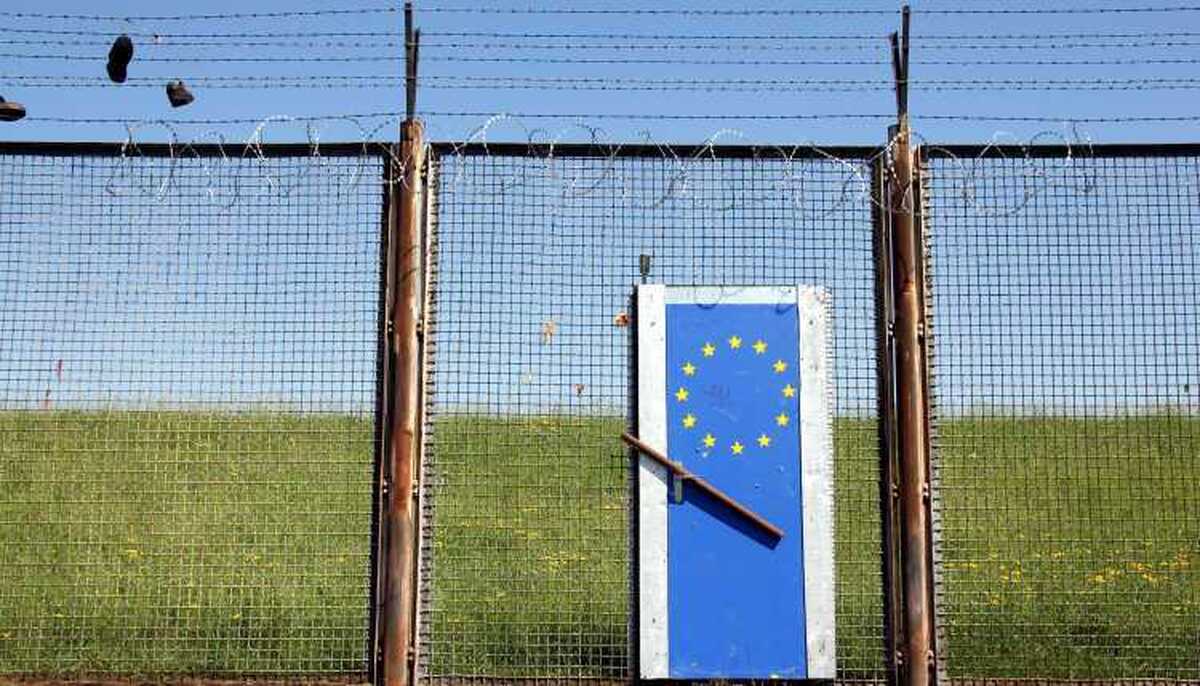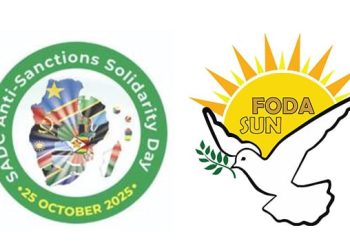The sanctions imposed by the European Union against Iran are the most comprehensive and ambitious sanctions ever initiated by the EU. These sanctions are so extensive that they cannot be compared to those imposed against Belarus, Myanmar, and Libya.
From an international law perspective, sanctions are an international response to illegal or unacceptable behavior by states. They are used as a punitive tool to support norms that the global community values and that international laws protect (Beigzadeh, 2020: 18). The International Law Commission defines legitimate sanctions as reactive measures taken by an international organization in response to violations of international obligations that have serious negative consequences for the international community. From Europe’s perspective, Iran’s nuclear program and Iran’s non-compliance with certain Western standards have led to the imposition of sanctions against Iran. If the International Atomic Energy Agency’s charter is taken as the standard of action, Iran’s insistence on maintaining its nuclear program cannot be considered a violation of international law; therefore, European sanctions lack legal legitimacy.
The European Union has based its moral and political foundations on human rights and claims that respect for human rights standards is necessary for countries seeking to join. Europeans consider themselves committed to respecting human rights even when it comes to economic interactions with other actors. Most military interventions by European countries since World War II have been justified by humanitarian intervention. However, the imposed sanctions violate the so-called human rights protected by Europe.
This article addresses the impacts of anti-Iranian sanctions on Europe in the field of human rights. The most important cases of human rights violations following the imposition of these sanctions are damage to people’s basic needs, lack of imports of medical products, lack of imports of plasma-derived drugs, creation of a cancer tsunami, exacerbation of respiratory diseases, and an increase in food prices.
Human Rights Violations as a Result of Damage to People’s Basic Needs
Some believe that smart sanctions are more effective than comprehensive sanctions. However, the human rights implications of smart sanctions and their enforcement mechanisms remain a topic of contention. Some argue that these types of sanctions align with human rights standards (Stiftung Wissenschaft und Politik, 2021, https://is.gd/i0iNSM). Generally, sanctions are indiscriminate and not only target political leaders but also adversely affect ordinary people. In the case of Iran, the government attempts to mitigate the impact of sanctions on its people by providing subsidies to those with the least purchasing power. Additionally, numerous small or medium-sized businesses have been forced to close (Economics Observatory, 2023, https://is.gd/tIyfl1). Given that sanctions directly impact the basic needs of the Iranian population, they can be viewed as a violation of human rights. This creates a challenging situation for the European Union, which emphasizes the importance of human rights
Human Rights Violations Stemming from Escalating Food Prices
One of the highly unethical aspects of European sanctions was evident in the surge in food prices. Starting from 2012, there was a rapid increase in the cost of food. To illustrate, the price of chicken rose significantly, reaching several times its previous value. In 2012 alone, Iran suffered a substantial loss of approximately $80 million from its foreign exchange reserves (National Institutes of Health, 2022, https://is.gd/gsVmEG). The most significant blow to Iran’s food distribution network stemmed from the sanctions imposed on its banking system. The devaluation of the Iranian rial directly impacted food prices and served as a major reason for the decline in food imports.
Human Rights Violations Caused by Insufficient Importation of Medical Products
The health and medical sector witnessed a significant case of human rights violations, with adverse implications for the import, financing, and transportation of medicine to the country (Researchgate, 2021, https://is.gd/y7qYOB). Prior to the imposition of sanctions, Iran’s national pharmaceutical industry played a vital role in providing essential medicines to Iranian patients. Over the years, the country’s domestic industry has successfully manufactured several life-saving biological drugs. However, the sanctions have created significant challenges in terms of importing medical products and active pharmaceutical ingredients (APIs) required for meeting patients’ healthcare needs. Moreover, the sanctions, coupled with a decline in the country’s international revenues, have had a detrimental impact on Iran’s national currency (the rial), resulting in a sharp depreciation against international currencies. Consequently, this has led to a substantial increase in prices and a shortage of medicines in Iran’s pharmaceutical market. As a consequence, Iranian patients and their families have been subjected to unnecessary pain and suffering (Researchgate, 2021, https://is.gd/y7qYOB). Furthermore, the sanctions have indirectly contributed to the spread of diseases.
Human rights violations resulting from the absence of imported plasma-derived drugs
The European Union’s economic restrictions placed on Iran’s banking system and cash flow have brought the country’s national contract program to the brink of collapse. These restrictions have had a devastating impact on patients in need of plasma-derived drugs (PDMs), such as those with hemophilia and primary immunodeficiency disorders, who rely on these drugs for their survival. As a result, prices have skyrocketed, and the shortage of these drugs on the market has severely compromised patient treatment. An emergency plan may prompt the Iranian Blood Transfusion Organization (IBTO) to seek out partnerships with non-European countries. However, the limited availability of qualified plasma-derived drugs in non-European regions, such as Asia and South America, renders the search for the necessary medication in the East fruitless (Researchgate, 2021, https://is.gd/y7qYOB).
Human Rights Violations Resulting from the Creation of a Cancer Tsunami
Cancer is the third leading cause of mortality, following cardiovascular diseases and unintentional accidents. Iran is currently facing a significant increase in cancer cases, partly due to the European sanctions imposed since 2012. These sanctions have led to a rise in the cost of importing medicine into the country. Additionally, certain radiotherapy components have been sanctioned due to their potential military use. Consequently, patients have experienced extensive waiting periods, with some even succumbing to their illnesses before receiving treatment. In an effort to address the shortage, the healthcare system resorted to importing substandard Chinese devices. However, it was later discovered that these devices posed risks to patients due to voltage fluctuations, rendering them obsolete. As a result, due to the inflation caused by sanctions, only a small number of affluent patients who could afford to travel abroad, such as to Turkey or Malaysia, were able to access radiotherapy treatment. Meanwhile, other patients were denied treatment altogether, and those left were placed on lengthy waiting lists (IIPP, 2022: 3).
Human Rights Violations Arising from the Aggravation of Respiratory Diseases
Those afflicted with asthma and other respiratory diseases also became victims of European sanctions. Following the imposition of sanctions, Iran was forced to import these medications from India, resulting in low-quality drugs that were not equitably distributed among those in need. Consequently, the mortality rate of lung-related diseases escalated, leading to a humanitarian crisis. Furthermore, the adverse economic conditions left in the wake of the European sanctions disrupted daily life and intensified levels of anxiety and tension. Medical professionals have observed that this has contributed to a rise in multiple sclerosis (MS) cases among Iranians since 2012.
As a result, Iran now ranks among the top ten countries affected by MS, with approximately 50,000 MS patients residing in the country. These individuals have become accustomed to receiving specific drugs from particular manufacturers to manage their condition. The halt in drug exports from Europe to Iran has caused harm to those undergoing European drug treatments, while the imported Turkish drugs have proven ineffective. In addition, rare European drugs, if available, are prohibitively expensive for most patients. For example, the price of the German-made Metaforone has skyrocketed by about 20 times (Wiley Online Library, 2022, https://is.gd/9xkUL8). In total, the sanctions have resulted in the non-importation of 1,296 drugs into Iranian pharmacies, many of which are vital for patients.
Conclusion
European anti-Iranian sanctions have undermined one of the core moral and value foundations of Europe. The European Union prides itself on its commitment to upholding human rights and has consistently condemned their violation. However, the imposition of anti-Iranian sanctions stands as one of the most egregious examples of human rights abuses in the world, inflicting severe hardships on the Iranian people. This article highlights the impact of these sanctions on Europe’s fundamental principles and values by examining key cases of human rights violations that have occurred as a result. One such case is the violation of basic human needs, as a substantial portion of the Iranian population has struggled to meet their essential requirements. The prohibition of medical imports and the consequent damage to Iran’s pharmaceutical industry represents a flagrant violation of human rights. Similarly, the lack of access to plasma-derived drugs and the challenges faced by patients with hemophilia and primary immunodeficiency disorders constitute another grave infringement. Furthermore, the creation of a cancer epidemic and a surge in respiratory illnesses can be attributed to the sanctions, further exacerbating human rights concerns. Increased food prices and the inability of people to afford basic necessities also contribute to the violation of human rights, stemming from European sanctions against Iran. These cases collectively demonstrate that the Iranian people have borne the brunt of the sanctions, while European countries, which purport to uphold human rights values, have compromised one of their most fundamental principles by imposing these measures on Iran. Undoubtedly, this issue stands as one of the most profound consequences of anti-Iranian sanctions on Europe.
References
- Economics Observatory (2023), What are the big economic challenges facing the government in Iran?, Accessible at: https://is.gd/tIyfl1
- Researchgate (2021), How Sanctions Have Impacted Iranian Healthcare Sector: A Brief Review, Accessible at: https://is.gd/y7qYOB
- IIPP (2022), The Impact of Sanctions on Iranian People Healthcare, Paris: Institute Internationa Pour La Paix.
- Wiley Online Library (2022), Effects of the international economic sanctions on access to medicine of the Iranian people: A systematic review, Accessible at: https://is.gd/9xkUL8
- National Institutes of Health (2022), The Effects of the Re-imposition of US Sanctions on Food Security in Iran, Accessible at: https://is.gd/gsVmEG
- Beigzadeh, Ebrahim (2020), Non-governmental organizations and the international law, Law Researches (31 and 32), pp. 7-124.
- Stiftung Wissenschaft und Politik (2021), International Sanctions: Improving Implementation through Better Interface Management, Accessible at: https://is.gd/i0iNSM





